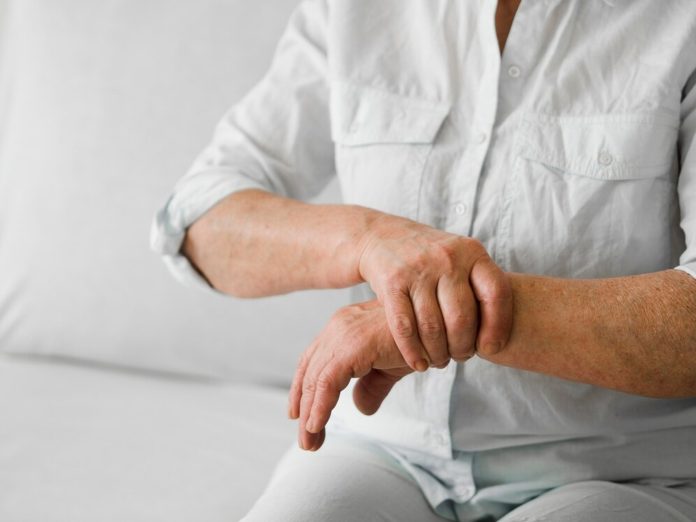Recent figures from the Department for Work and Pensions (DWP) reveal that nearly 461,000 individuals across Great Britain now receive Attendance Allowance specifically to help with arthritis, a condition that has become the most claimed-for health issue among those over the State Pension age. Among these claimants, more than 42,000 elderly people in Scotland are currently benefiting from weekly payments ranging from £72.65 to £108.55, depending on the severity of their condition. In addition, over 1,500 British pensioners living overseas also receive this crucial financial support.
The Attendance Allowance is a non means-tested, tax-free benefit provided every four weeks to those who need additional help with personal care or safety due to a severe physical or mental disability or illness. For claimants receiving the lower rate, this amounts to £290.60 every four weeks, while those on the higher rate receive £434.20. Given that arthritis affects more than one-third of all Attendance Allowance claims, which total 1.7 million across Great Britain, it is clear that this chronic condition continues to impose significant challenges on older adults.
Arthritis is the leading disabling condition recorded by the DWP, encompassing a wide range of health issues that include stiffness, swelling, pain, and inflammation of the joints. It is estimated that 20 million people in the UK suffer from arthritis or other similar joint conditions. For individuals experiencing back, joint, muscle, or chronic pain due to arthritis, the financial support provided through Attendance Allowance offers a critical lifeline, helping them manage day-to-day living costs associated with their care needs.
Despite the widespread availability of Attendance Allowance, many people who are eligible may be unaware of its existence or unsure how to begin the application process. The benefit is designed for those who need help with personal care tasks, such as getting dressed, eating or drinking, using the bathroom, or getting in and out of bed. Additionally, individuals who require supervision to ensure their safety or experience prolonged discomfort while completing everyday tasks could also qualify for support. This includes those who may not currently receive help from a carer, but whose disability or illness significantly affects their ability to care for themselves.
The financial support available through Attendance Allowance can make a tangible difference in maintaining a claimant’s independence at home. Whether the funds are used for practical expenses, such as taxi fares, hiring a cleaner, or contributing to household bills, the money provides flexibility for recipients to manage their personal needs in the most beneficial way for them. Importantly, the benefit is not means-tested, meaning individuals can still claim Attendance Allowance regardless of their savings and other income.
For those worried about how Attendance Allowance might affect their other benefits or pensions, the DWP clarifies that it does not impact the State Pension. Additionally, Attendance Allowance can lead to an increase in other benefits, such as Extra Pension Credit, Housing Benefit, or Council Tax Reduction, providing further financial relief. The benefit is also exempt from the Benefit Cap, ensuring that recipients will not see a reduction in other forms of government assistance.
The process for claiming Attendance Allowance may seem daunting due to the length of the required form, but assistance is available through local Citizens Advice offices. For individuals who prefer to complete the process themselves, a comprehensive guide is available online to assist with the application. It is essential not to be discouraged by the paperwork, as many claimants find that the benefit offers significant support once awarded.
For individuals approaching State Pension age, it may be worth considering applying for Personal Independence Payment (PIP) instead of Attendance Allowance. In Scotland, PIP has been replaced by the Adult Disability Payment, but the two benefits share similar eligibility criteria and offer comparable weekly rates. The choice between the two benefits largely depends on individual circumstances and how a person’s disability or illness impacts their daily life.
However, those already receiving PIP or Disability Living Allowance (DLA) are not eligible for Attendance Allowance to cover their care costs. In such cases, the DWP typically reassesses the existing DLA award rather than approving a new claim for Attendance Allowance. Claimants can renew their PIP or DLA when their current award expires, provided they continue to meet the eligibility requirements. If their renewal is unsuccessful, they may then be able to apply for Attendance Allowance.
As the number of older adults living with arthritis continues to grow, the demand for Attendance Allowance remains high. This benefit plays an essential role in ensuring that older individuals have the financial resources necessary to maintain their quality of life and independence, despite the challenges posed by chronic health conditions. With an increasing elderly population, the provision of support for arthritis and other disabling conditions will likely remain a priority for policymakers in the years to come.























